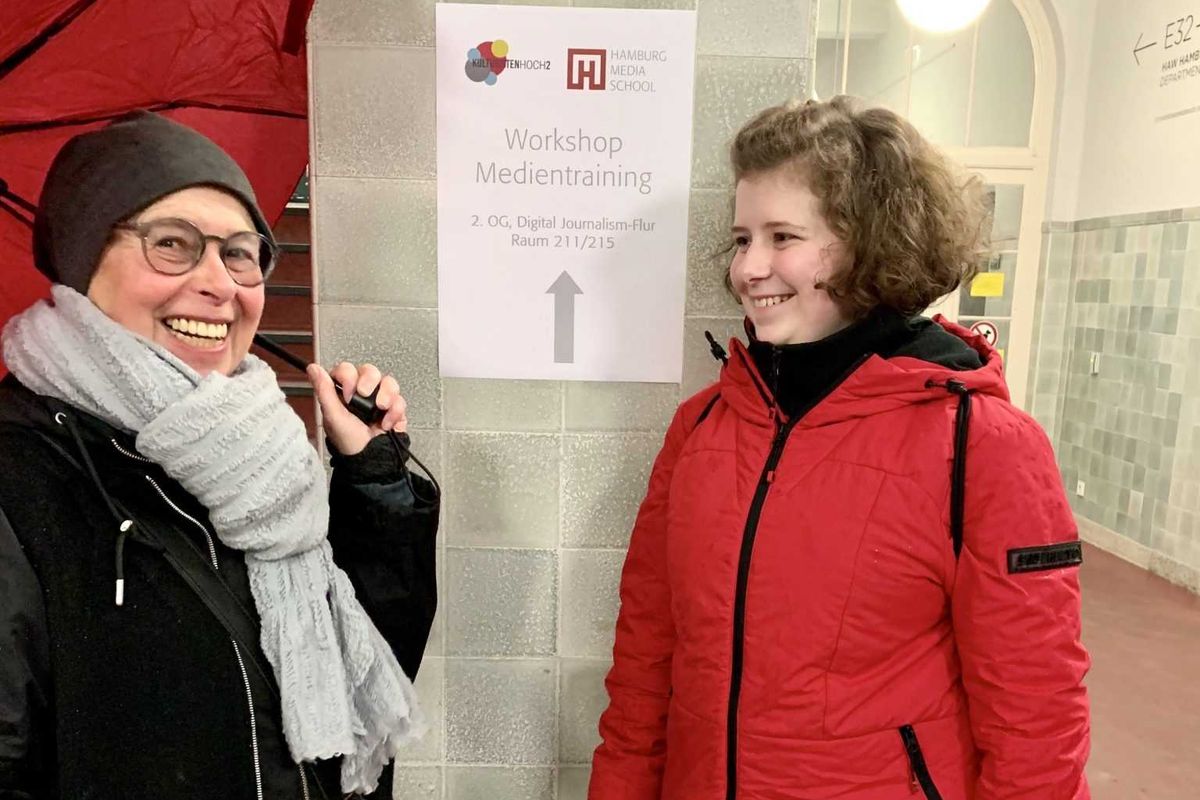Kristen Bell's 'honest parenting approach' could help other parents.
Parents sometimes withhold honest information to protect their kids, but that may not be the best approach.

Kristen Bell's honest parenting approach could help other parents.
Let's be honest here for a minute.
There are tough conversations that are just plain ol' uncomfortable for parents to have with their children. Some parents would rather deflect difficult questions or give a very made-up, childlike answer. For example, a parent might tell a child babies come from storks or they give them out at the hospital, just to avoid the topic of sex.
The thought is usually that the child is too young to know actual information about the difficult topic, so in a fit of panic, the parent makes something up. But as a licensed therapist with a degree in child development, I can tell you kids typically only ask questions they're ready to hear the answer to. In fact, they're really good at letting you know when you over-explain because they'll either change the subject or become obviously disinterested.
Actress Kristen Bell made headlines recently for her approach to discussing difficult topics with her children. She's honest with her kids, even about their father's addiction and recovery. Bell appeared in the magazine Real Simple and explained that there's nothing off the table to discuss with her two daughters, Delta, 8, and Lincoln, 9 1/2.
"I know it's shocking, but I talk to my kids about drugs, and the fact that their daddy is an addict and he's in recovery, and we talk about sex," she says. "There are all these 'hard topics' that don't have to be if you give the person on the other end your vulnerability and a little bit of credit," Bell told Real Simple. Being completely honest with children can be shocking to some parents, Bell noted in the interview.
Certainly, complete honesty comes with the caveat of delivering the information in an age-appropriate and developmentally appropriate way. But why do parents shy away from honesty when it comes to talking to kids about hard topics? Well, in my experience, it's often because it makes the parent uncomfortable or they're so worried about getting it wrong that they put off answering, thus creating anxiety-inducing anticipation.
Parents don't want to accidentally mess up their kids and they also don't want to expose them to things they don't think they're ready for. And sometimes things pop up unexpectedly that parents simply don't have a choice about when it comes to having hard conversations.
"There are many things that children don't yet understand, and exposing them to complex topics early on can help both their emotional and intellectual development," Alicia Robins from the Institute for Childhood Preparedness wrote. Being truthful also helps encourage children to be open and honest in return because there's been a reciprocal exchange of information and feelings from an early age.
A 2022 study of Indigenous families found that being honest with children created more resilience, quality relationships and overall life satisfaction. But when looking at parents who practiced less open communication, including lying, children were less likely to be resilient and had an increased risk of trauma symptoms in adolescence.
While experts aren't saying you should tell your children all the nitty gritty details of topics, they are saying that age-appropriate honesty is best, even when the topics are hard.
- What nobody warns you enough about when it comes to having kids ›
- John Stamos shares parenting advice given by Bob Saget and parents can relate ›
- Mom documents positive parenting on TikTok and the heartwarming results in her kids ›
- Win $1,000 and a personal message from Kristen Bell - Upworthy ›
- Kristen Bell's says her daughter likes non-alcoholic beer - Upworthy ›
- Psychologist explains what 'eggshell parenting' means - Upworthy ›
- 80s and 90s homes videos show how parenting has evolved - Upworthy ›
- Couple admits to fighting in front of their kids - Upworthy ›
- None ›
- Dad discovers child has pinworms and it's freaking people out - Upworthy ›
- Parents opt for "sleepunders" instead of sleepovers - Upworthy ›
- Mom has different take on parents being on their phones - Upworthy ›
- Mom shares the unforgettable parenting advice she received from a complete stranger - Upworthy ›
- 19 brutally honest truths that may be hard to hear - Upworthy ›



 A UPS truck with package deliveries.Image via Wikipedia
A UPS truck with package deliveries.Image via Wikipedia
 Cher was the biggest phenomenon on the planet for the better part of the '70s and '80s.Casblanca Records/
Cher was the biggest phenomenon on the planet for the better part of the '70s and '80s.Casblanca Records/

 A high school volunteer with her senior "tandem."
A high school volunteer with her senior "tandem."  KH2 makes leaving the house more accessible to senior citizens.
KH2 makes leaving the house more accessible to senior citizens.  Many "culture buddies" stay in contact after the program ends.
Many "culture buddies" stay in contact after the program ends.  KH2 provides students with excellent life skills and lasting connections.
KH2 provides students with excellent life skills and lasting connections. 
 Parents posing with their young kids on a basketball court. via
Parents posing with their young kids on a basketball court. via